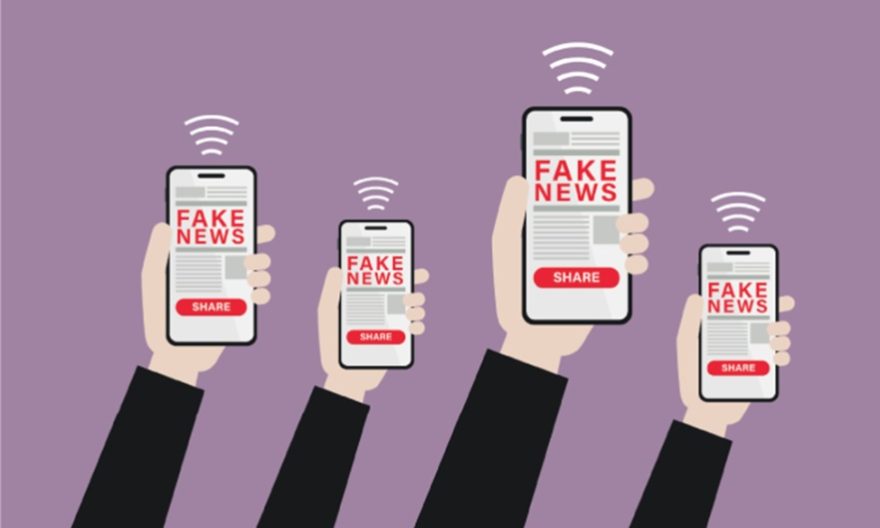
The invention of the internet has brought dynamic changes in this world. According to reports, the use of digital media specifically social media is growing at a rapid pace and the twenty-first century could be described as the “boom” period for social networking. According to reports provided by Smart Insights, as at February 2019 there were over 3.484 billion social media users. The Smart Insight report indicates that the number of social media users is growing by 9 percent annually and this trend is estimated to continue.
Currently, the number of social media users represents 45 percent of the global population. The heaviest users of social media are digital natives, the group of persons who were born or who have grown up in the digital era and are intimate with the various technologies and systems, and the “Millennial Generation”, those who became adults at the turn of the twenty-first century. These groups of users utilize social media platforms for just about anything ranging from marketing, news acquisition, teaching, health care, civic engagement, and politicking to social engagement.
However, the unethical use of social media has resulted in the breach of individual privacy and impacts both physical and information security. Reports in 2019 reveal that persons between the ages 8 and 11 years spend an average 13.5 hours weekly online and 18 percent of this age group is actively engaged on social media. According to Cyber-security Company Surfshark, those between ages 12 and 15 spend on average 20.5 hours online and 69 percent of this group are active social media users. While children and teenagers represent the largest Internet user groups, for the most part they do not know how to protect their personal information on the Web and are the most vulnerable to cyber-crimes related to breaches of information privacy.
Recently, media experts expressed the necessity of improving literacy and awareness of the society to alleviate the demerits of social media in Ethiopia. Lack of awareness and poor social media literacy is making the country prone to various existing and new social and economic problems, the scholars noted.
Social media has to promote Ethiopian language, culture, community growth and boost tourism flow, but it has seen causing and deteriorating conflicts due to mismanagement, stated Yordanos Gizachew, Head of Journalism and Communication at Jigjiga University.
She said that the country needs to strive to minimize the social media impact through providing training on how to utilize the platform for common good which enables media professionals to transmit accurate news.
“We may easily like or share information on social media but those who disseminate hate speech, fake news use the opportunity to escalate instability and get the nation into crisis. For this reason, everyone should use the platform cautiously to ensure peace,” Yordanos said.
The society should be well aware of the information it disseminates and be alert to whom it sends a message. “When access to social media flourishes in developing countries, it might cause problems since there is no restriction. In developed countries, users have time-limiting options that appear on social media apps,” she expressed.
However, there is no such technology in Ethiopia. Therefore, the government must work with Ethio telecom to control fake news disseminated on social media. She also suggested that establishing law is crucial to ensure accountability of those who spread fake news on social media.
Wollo University Journalism and Communication Lecturer Yalew Desalegn on his part said that people should have social media and information literacy while using the platform.
In the context of Ethiopia, most people don’t have the aforesaid literacy that’s why many crises are happening. Yalew stated that message recipients share information without verification which creates conflict since most of the information arises from rumors rather than evidence.
“Everyone should be aware that the media has the power of building or dismantling a nation. So everyone should receive accurate news and examine it critically before sharing it with a third person. It needs an awareness creation campaign to mitigate social media usage constraints,” he recommended.
It is appropriate to provide training to students from elementary to university level in order to raise the awareness of the generation about proper usage of social media for the public good, it was learnt.
Ethiopians should be aware of when and how to use social media since it helps to ease the social, economic and political problems of the nation. Citizens should use social media to promote culture, mobile banking and to realize behavioral change, the scholars recommended.
Meanwhile, the Ethiopian Civil Society Organizations Council (ECSOC) and Meta (Facebook Company) announced that they are working closely to promote digital literacy and foster peace building in Ethiopia.
Program and Development Director with ECSOC, Hana Woldegebriel said that ECSOC and Meta have entered into a collaborative initiative aiming to enhance digital literacy for peace building across the nation.
Digital platforms can transform CSOs’ capacity, enhance efficiency, improve their engagement with stakeholders, improve the quality of their services, and provide new ways of generating revenues, among others.
This event is designed to equip CSO representatives with the necessary digital skills to enhance safe and responsible use of digital platforms and fostering an environment of informed, reflective, and meaningful engagement.
In sum, social media platforms have played a crucial role in fostering societal change and transformation. However, the misuse of these platforms, including the proliferation of misinformation, calls to violence, and hate speech, has posed a significant challenge with the potential to exacerbate offline harm.
BY TEWODROS KASSA
The Ethiopian Herald March 22/2024





